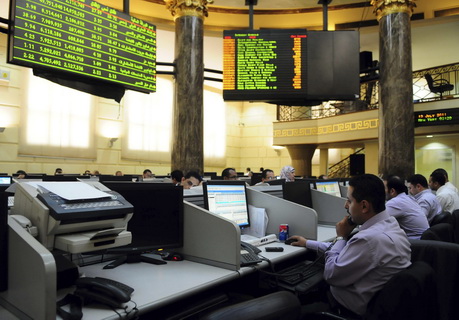Minister of Finance Mohamed Maait said that the Egyptian economy has performed well in the past nine years, despite the inaccurate estimates of some analysts. He said that the government has implemented economic reforms that have resulted in a primary surplus for six consecutive years, and that it aims to achieve the largest primary surplus in Egypt’s history, 2.5% of the gross domestic product, in the current fiscal year (FY) 2023/24.
Maait made these remarks in a statement issued by the Ministry of Finance on Tuesday, where he clarified the difference between the primary surplus and the budget deficit. He said that the primary surplus is the difference between the state revenues and expenditures, excluding the interest payments on the public debt. He said that the budget deficit is the difference between the state revenues and expenditures, including the interest payments.
He explained that for 37 years, the state expenditures were greater than the revenues, resulting in a primary deficit and a budget deficit. However, since the fiscal year 2017/18, the state revenues have exceeded the expenditures, resulting in a primary surplus and a lower budget deficit. He said that the primary surplus reached 1.6% of the gross domestic product in the fiscal year 2022/23, despite the severe global crises caused by the coronavirus pandemic and the war in Europe.
He added that the trade exchange between Egypt and Greece reached €2.56bn in 2022, marking a 21% increase from €1.697bn in 2021. He said that the meeting also addressed the investment opportunities for Greek companies that want to enter the Egyptian market through joint or local production and export to the European markets, taking advantage of the competitive advantages and potentials of the Egyptian market.
Maait acknowledged that the Egyptian economy is facing many challenges, such as the decline in revenues due to the slowdown in economic activity, the increase in expenditures to provide the basic needs of citizens, and the rise in the cost of financing in international markets. However, he stressed that the government is continuing to build the state with its comprehensive capabilities, including development and urbanization in every inch of Egyptian land to improve people’s lives and the services provided to them in various sectors. He pointed out that Egypt has a strong and advanced infrastructure that can accommodate investment and productivity activities.
Maait said that when the world’s economies closed their doors due to the coronavirus, Egypt opted for partial closure, and President Abdel Fattah Al-Sisi said: “We cannot close the homes of millions of people working in development projects.”
Egypt’s economy has improved over the past nine years despite global crises and domestic challenges, according to Finance Minister Mohamed Maait. He said that the state has adopted policies of financial discipline, efficiency, and diversification to reduce the budget deficit, the debt-to-GDP ratio, and the dependence on external financing. He also said that the state has increased spending on development investments, health, education, and social protection to support the citizens and improve the quality of life.
Maait highlighted some of the achievements of the state in various sectors, such as:
- Health: Allocations increased by 447% from EGP 36.4bn to EGP 200bn over 9 years, including EGP 2.5bn for comprehensive health insurance and EGP 8.1bn for treatment at state expense.
- Education: Allocations increased by 173% from EGP 84.1bn to EGP 230bn over 9 years, with a focus on improving the infrastructure and curriculum of public schools and universities.
- Government investments: Allocations increased by 1009% from EGP 53bn to EGP 587bn over 9 years, with a priority on infrastructure projects such as roads, bridges, electricity, water, and sanitation.
- Social security: Allocations increased by 614% from EGP 5bn to EGP 35.5bn over 9 years, benefiting 5.2 million families through the Takaful and Karama programme, which provides cash transfers to the poor and vulnerable groups.
- Food commodities: Allocations increased by 260% from EGP 35.5bn to EGP 127.7bn over 9 years, subsidizing essential items such as bread, sugar, oil, and rice for the low-income segments of the population.
- Social housing: Allocations increased by 410% from EGP 2bn to EGP 10.2bn over 9 years, supporting the construction and delivery of affordable housing units for the middle and lower classes.
- Wages: Allocations increased by 163% from EGP 178.6bn to EGP 470bn over 9 years, raising the minimum wage from EGP 1,200 to EGP 4,000 and the tax exemption limit from EGP 12,000 to EGP 45,000.
- Pensions: Allocations increased by 592% from EGP 29.2bn to EGP 202.2bn over 9 years, resolving the conflict with the National Authority for Social Insurance and paying EGP 2.3trn to pensioners until mid-2029.
Maait expressed his optimism about the future of the Egyptian economy, saying that the state is committed to continuing the reform process and achieving sustainable and inclusive growth. He also thanked the citizens for their cooperation and patience, saying that the state is working to contain the difficulties and provide exceptional social protection packages.



